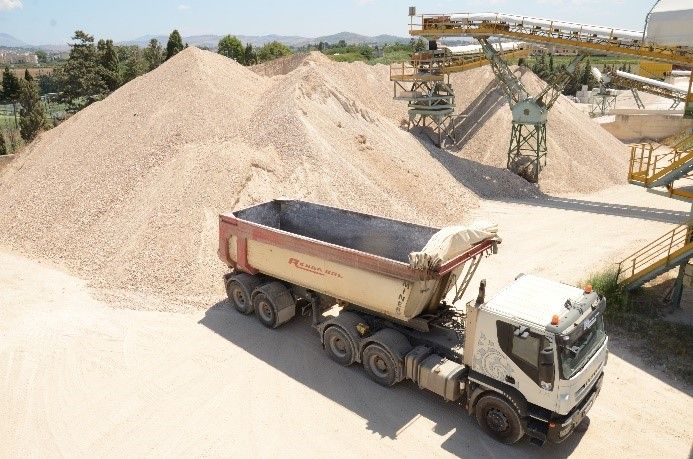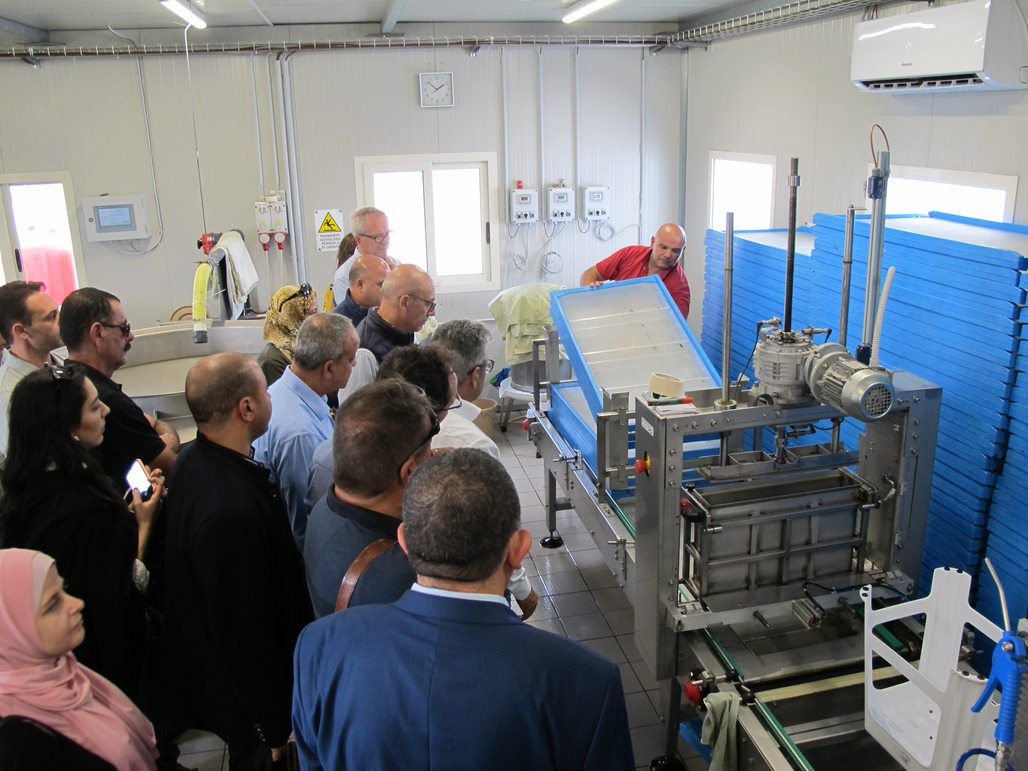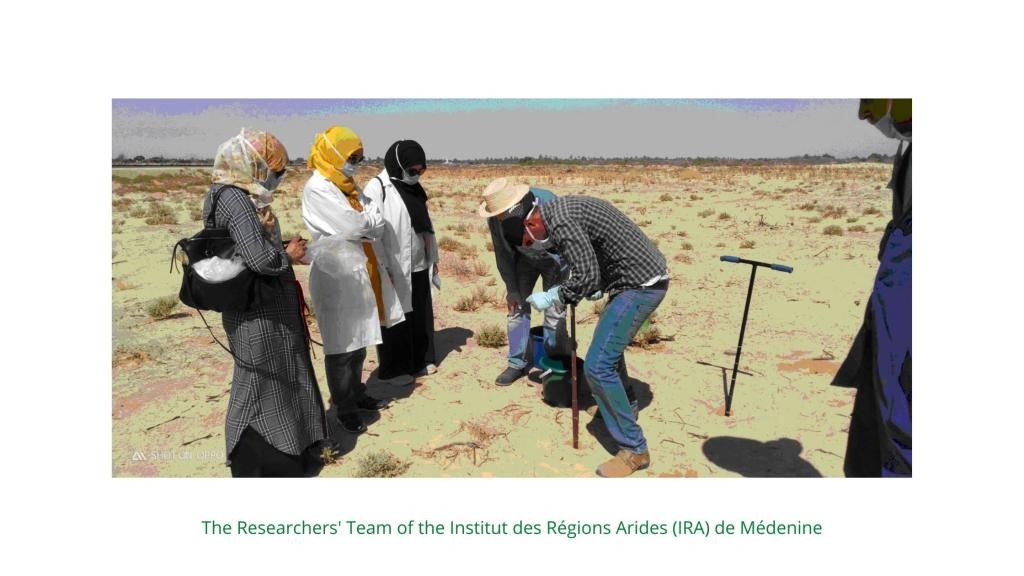MED regions around the (virtual) table to prepare for climate change
A dialogue between elected officials from both shores of the Mediterranean highlights the need to pursue the road to ecological transition, for which ENI CBC projects are working since several years. An online event – organised by the ENI CBC MED programme among others – with a final message: the future of the Mediterranean lies in widespread responsibility of decision makers, suppliers, and users, linked together as a “community of practice” when it comes to energy, waste, or water management.
How to confront the challenge of climate change? The alertness of the risk is increasing, and the reflection is transforming into action. As local authorities are more and more aware of the efforts required to encourage ecological transition, Mediterranean territories are preparing to adapt to the human and socio-economic consequences of climate change. And ENI CBC projects are doing their part as versatile instruments to foster research and awareness, urging  municipalities to act for the use of treated wastewater or waste recycling, for the preservation of biodiversity or the diversification of crops, for the reduction of emissions or the greening of traditional sectors like agro-food. Every step is important, every activity valuable: to promote circular economy, for example, the RE-MED project is applying waste from demolition works into construction and maintenance of roads. Yes, it’s a long way to go, almost everything we do has an environmental impact. That is why behavioural changes are more needed than ever.
municipalities to act for the use of treated wastewater or waste recycling, for the preservation of biodiversity or the diversification of crops, for the reduction of emissions or the greening of traditional sectors like agro-food. Every step is important, every activity valuable: to promote circular economy, for example, the RE-MED project is applying waste from demolition works into construction and maintenance of roads. Yes, it’s a long way to go, almost everything we do has an environmental impact. That is why behavioural changes are more needed than ever.
This was in essence the core of the dialogue between elected representatives from both shores of Mediterranean territories, which took place online on 15 February. A meeting full of testimonies by local authorities, a dialogue during which the struggle against climate change was declined in many concrete examples with accounts from Algeria, Lebanon, Tunisia, France, Italy, and Spain. The event was jointly promoted by the ENI CBC MED programme, the EUROMED network of cities and the Region Sud Provence Alpes-Côte d’Azur. Opening the meeting, DG Regio recalled the formidable opportunity offered by the Interreg and ENI CBC programmes, expressing satisfaction for the response given by territories.

As a matter of fact, the regions around the Mediterranean bear the full burden of global warming, with soaring temperatures, coastal erosions, desertification, extreme weather events. “Environmental challenges do not know geographical borders, nor remain confined in cities. Mayors and municipalities need to act together to be able to make a difference – said Ms. Celsa Monrós Barahona, Director General of Climate Change, Generalitat Valenciana (Spain). “Joining forces between small municipalities is enormously beneficial to find common solutions, to remain optimistic, and not to suffer isolation”, said Ms. Nicole Gemayal, Mayor of Bikfaya and Tanaayel, Lebanon (CLIMA project). The role of local and regional governments was highlighted as crucial to put in place policies fostering the ecological transition.
 Several ENI CBC MED projects also shared their experience and results, showcasing activities already implemented in the field. For example, the representative of MEDISS project (Mediterranean Integrated system for water supply) explained how important it is to improve the quality of saline groundwater, and to spread the use of non-conventional water resources. “We are putting around the same table farmers, associations and researchers – said Moutaz Al-Hroob, representative of the Governorate of Jericho and Al-Aghwar (Palestine) – with the scope of finding the most effective solutions for wastewater treatment, to be adopted here and scaled elsewhere”. Organic waste mismanagement was also at the core of the intervention of CLIMA, a project led by the city of Sestri Levante (Italy), where a pact was agreed between smaller towns to jointly reduce pollution and CO2 emissions,
Several ENI CBC MED projects also shared their experience and results, showcasing activities already implemented in the field. For example, the representative of MEDISS project (Mediterranean Integrated system for water supply) explained how important it is to improve the quality of saline groundwater, and to spread the use of non-conventional water resources. “We are putting around the same table farmers, associations and researchers – said Moutaz Al-Hroob, representative of the Governorate of Jericho and Al-Aghwar (Palestine) – with the scope of finding the most effective solutions for wastewater treatment, to be adopted here and scaled elsewhere”. Organic waste mismanagement was also at the core of the intervention of CLIMA, a project led by the city of Sestri Levante (Italy), where a pact was agreed between smaller towns to jointly reduce pollution and CO2 emissions, including through the creation of cycle paths and shared maintenance of coastlines and green spaces. The necessity to reduce energy consumption in public buildings was illustrated with examples by the SEACAP-4-SDG project, and the RE-MED representatives explained how using waste resulting from demolition works in construction and maintenance of roads, can contribute to the progress of a circular economy. It was a great example of how the dimension of sustainable development can be integrated in the road sector. “The circular economy around road maintenance generates the construction of infrastructure for disposal and treatment of waste” said Oumaya Marzouk, Director of Circular Economy Projects, Center for studies and expertise on risks, environment, mobility and planning (CEREMA – France). “And this can lead to the creation of jobs – she continued – as well as to the development of solutions against illegal landfills of waste materials”.
including through the creation of cycle paths and shared maintenance of coastlines and green spaces. The necessity to reduce energy consumption in public buildings was illustrated with examples by the SEACAP-4-SDG project, and the RE-MED representatives explained how using waste resulting from demolition works in construction and maintenance of roads, can contribute to the progress of a circular economy. It was a great example of how the dimension of sustainable development can be integrated in the road sector. “The circular economy around road maintenance generates the construction of infrastructure for disposal and treatment of waste” said Oumaya Marzouk, Director of Circular Economy Projects, Center for studies and expertise on risks, environment, mobility and planning (CEREMA – France). “And this can lead to the creation of jobs – she continued – as well as to the development of solutions against illegal landfills of waste materials”.
From the discussion it seems clear that the future of the Mediterranean lies in widespread responsibility of decision makers, suppliers, and users, linked together as a “community of practice” when it comes to energy, waste, or water management. The future also requires a new mindset, and the next generation is ready to assume the challenge. 2022 has been declared by the European Commission the Year of Youth, a moment where young people will be able to bring forward their ideas, needs, suggestions, as beneficiaries but also as protagonists of territorial cooperation, for a growth which is both sustainable and inclusive. Watch the interviews of Mai and Ahmed.
At the end of the event, the guidelines of the 2021-2027 Interreg NEXT MED programme were presented: a new beginning, or rather an extension, since many of the challenges presently underway within the 2014-2020 programming period, can find solid continuity in the priorities and orientations of the new cycle. Because neighbours share the same home.
